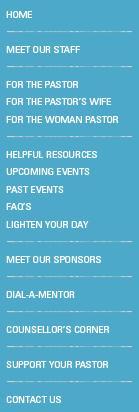by
Wendy Kittlitz
Do you ever struggle with truly feeling loved? Loved by God? Loved by your spouse? Loved by those you love? In your head, maybe you know that people love you or God loves you, but it might not always translate into your heart or soul.
Or maybe you are puzzling over why there are people in your church who, in spite of hearing for years how much God loves them, still find it difficult to internalize that truth?
You or they may be suffering from an attachment injury, or what Dr. Tim Clinton and Dr. Gary Sibcy, authors of Attachments, call a “soul wound.”
When we are infants, secure attachment develops as a baby expresses their need over and over and over again, and a warm, loving caregiver (usually, but not always, the mom) comes and meets the child’s need. When this happens repeatedly and predictably, a child internalizes a message that their voice matters, their needs are valid and there is someone out there who can be depended on to meet those needs. This lays a foundation of what we call “secure attachment.” The message communicated through this dance is that the world is a safe place, the child can depend on a trustworthy “other” and that by expressing themselves, their needs will be met. Someone with a secure attachment holds a positive view of themselves and others.
Unfortunately, not all children have this secure attachment experience in infancy and early childhood. Some children experience abuse and neglect, or they may have caregivers who were ill, depressed or in some other way unable to parent consistently. In these cases, insecure attachments, or what some have called “soul wounds,” are formed.
In their book, Clinton and Sibcy describe this as follows: “Attachment injuries occur when, in times of stress, we expect a loved one to be there for us, and for whatever reason, he or she is not. Finding the loved one absent, our fear doesn’t subside but increases and can eventually paralyze us as our pain is magnified. And if the loved one remains unavailable or hurtful in other ways, the injury pollutes our soul.”
There are three types of insecure attachment: ambivalent, avoidant and disorganized.
Those with an ambivalent attachment view others as generally positive, but hold a negative view of themselves. Somehow, they have internalized a message that they were not worth being cared for. They think, “Though others are capable of caring for some people, they will not care for me because there is something wrong with me.”
Those with an avoidant attachment generally hold a positive view of themselves, but view others negatively. They think, “I am capable, but need to take care of myself, because others have not shown me they can be trusted to care for me.”
Finally, those with a disorganized attachment have developed a negative view of both themselves and others. Early caregivers may have been alternately available and unavailable, often suffering from addictions and/or engaging in abusive behaviours. They think, “I cannot trust others and at the same time I fear that the reason people cannot or do not care for me lies with flaws within me.”
So what do we do about this? Are those who have suffered soul wounds destined to carry these wounds around forever and never enjoy real intimacy with God or others?
Thankfully, no. It is possible to achieve what is called “earned secure attachment” in our later years. How does one go about doing that?
We must acknowledge our earlier experiences and recognize what we have missed. We need to face the truth about how our early life impacts our present reality. Pete Scazzero, author of Emotionally Healthy Spirituality, refers to this as “going back in order to go forward.”
Clinton and Sibcy list five steps in their book to work towards resolution of soul wounds:
- Remember your story.
- Recognize your pain and the need for healing.
- Reframe the meaning of your story.
- Repair your story – and your damaged relationships and emotions.
- Reconnect.
These authors recommend connecting with a trusted guide through this process: a Christian counsellor, a spiritual director or perhaps a more seasoned pastor. It is difficult to heal relational wounds without doing it in the context of relationship. It is enormously helpful if that relationship is with someone who is not depending upon you to get their own needs met, which is the case in relationships such as your spouse, child or even a friend. In this setting, you can be free to unburden yourself, grieve losses, and be invited back into the presence of your loving Father who is able to give you freely all that you need to relate to Him without the shadow of that earlier caregiver who cared for you out of their own brokenness.
Healing these wounds is possible and, in fact, crucial if we want to experience the intimacy that God longs to have with us and invites us into. If you or someone you know needs to begin this healing work, I recommend Attachments to get you started. If we can help recommend a counsellor near you, please give us a call at 1.888.5.CLERGY.
Wendy Kittlitz is the vice president of counselling and care ministries for Focus on the Family Canada.
© 2015 Focus on the Family (Canada) Association. All rights reserved. |


